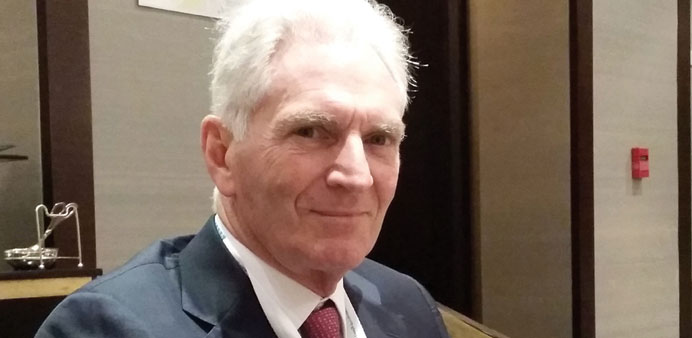By Joey Aguilar
Staff Reporter
Gulf countries stand to benefit from the proposed imposition of value added taxes (VAT) on goods and services (G&S) to develop a more comprehensive tax regime in the Gulf Cooperation Council (GCC) region, an expert has told Gulf Times.
The suggestion of Dr Nasser Saidi, former chief economist and head of external relations of the Dubai International Financial Centre (DIFC), came in the wake of calls from Qatari authorities for a review in government spending and reforms in subsidy and tax systems.
HE the Minister of Finance Ali Sherif al-Emadi had earlier said that GCC member states must workout ways to diversify their income streams, increase the efficiency of capital expenditure and exercise more control on current expenditure. “What I am focusing on in this discussion is the changes in the government economic policy, particularly tax policy, as a result of what we now called a ‘New Oil Normal,” the former DIFC official said.
“When we talk about the ‘New Oil Normal’ we mean that the structure of the oil and gas market has changed and we see the results in terms of prices; 60% decline since June 2014,” noted Saidi, now the founder and president of Nasser Saidi & Associates. He was speaking on the sidelines of the sixth annual Middle East and North Africa Tax Forum in Doha recently.
Imposing VAT on G&S and excise tax on tobacco, oil products, and cars, among others, are good starting points to develop a more comprehensive tax regime in the GCC, he pointed out.
Saidi said imposing excise taxes will generate revenue, control externalities like pollution and climate change, and discourage consumption of potentially harmful substances.
Such taxes, he said, are tailored to impose tax obligation on those who benefit from government services such as road users.
He stressed that GCC economies are maturing and need stable sources of revenues.
“In the past, every time revenue declined, the expenditure also declined and particularly investment spending declines, so it makes the business cycle even worse,” he added.
Explaining that the prospect for oil prices will be very difficult over the next four to five years, Saidi said GCC countries need to adjust and phase out subsidies, a big burden on the budget and growth.
“The oil crisis came as a big shock” for the Gulf countries, he said, “losing crucial export revenues used for government spending.”
However, he said, the crisis presents a ‘perfect storm’ opportunity for economic policy reform in oil producers, which highly depend on oil and gas revenues and low tax levels.
“The timing is excellent in introducing these new fiscal (tax) tools,” said Saidi, saying that two types of taxation can be imposed: broad based (for VAT) and selective (for G&S).
“The bottom line is that GCC countries right now need new policy tools, new instruments that they can use for economic policy management,” he noted.
In his presentation, he highlighted the importance of building tax administration capacity to easily collect taxes, and harmonising and synchronising introduction of new taxes.
“The design of the taxes should be the same, the rates should be the same,” Saidi stressed. “If one country taxes and the other country does not tax, then you are going to have trade of goods smuggling or illicit trade between them.”

Dr Saidi: GCC economies maturing. PICTURE: Joey Aguilar
